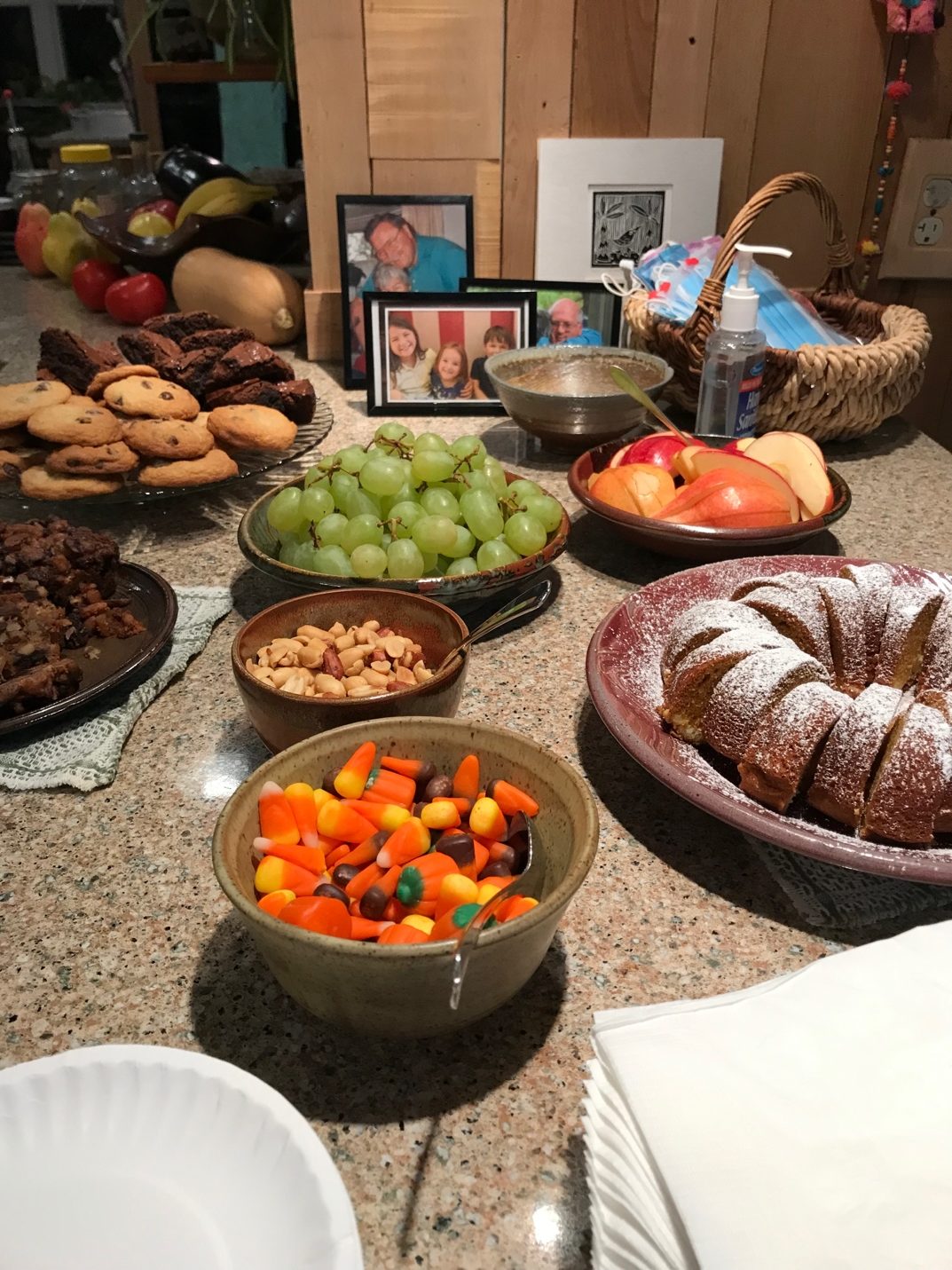
Just outside Asheville city limits, you can find the home of Bryan and Karen DuBois. The large picture window that graces the front of their house mirrors a twin piece of glass looking out into their backyard—a symbol of their home’s openness to community.
When the DuBois hosted artists Zane Vickery and Carly Taich a couple of months ago, it was their first experience like this. It has served as a new chapter in an already storied history of hospitality. “I think it starts back with family, at least for me,” Karen shared. “I come from a big family so I like to have a lot of people around. My mom wasn’t necessarily the best cook, but she could put out a big pot of food. And if the neighbor kid was over and it was dinner time, that was okay. There was a plate for the neighbor kid. It was ‘If you want to stay, you’re welcome to.’ I kind of grew up like that. And we always wanted our kids to have their friends come over when they wanted.”
They passed on this community value to their children, encouraging them to invite friends over and host movie nights with a projector in the backyard. So when the DuBois learned about the Porchlight hosting network, they were in. Bryan said, “I thought it was a tremendous idea to make that grassroots network of people while offering practical service. I loved the idea more than a particular interest in music. We learned that when we just open the house, people come in and they have wonderful conversations.”
Show Planning Begins
Once a show was in the books, the DuBois got to planning. “We reached out to friends in the local community, to people in the new church that we’ve recently been going to this last year, folks Bryan had worked with, and some folks that we met at the coffee shop,” they explained. Bryan also met Zane Vickery for coffee before the show, getting to know him and his story before the event, and they came up with a plan to divide and conquer on invitations. When showtime arrived, they had 24 people in attendance, all accommodated by the DuBois’ making the most of their open floor plan.
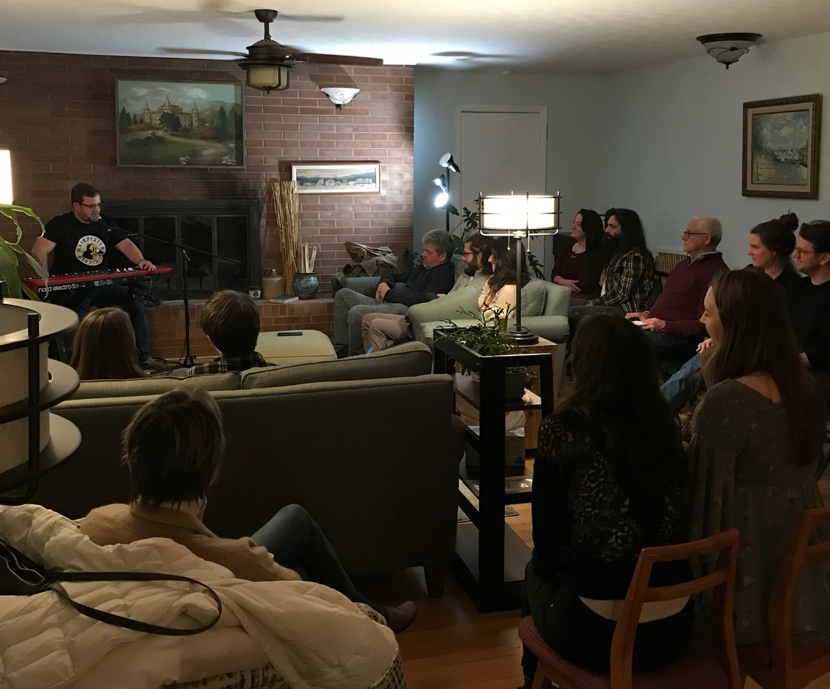
.“For me, it’s always a goal whenever anybody comes to my house to make them feel at home,” Karen expressed. “The day of, we had arranged already to have our chairs moved a little bit out of the way and decided what the flow of the evening would be. If they wanted to set something up for sale, like t-shirts or something like that, we had already made space so that they could just unload right where they needed to be.”
The Night of the Show
The DuBois had guests arrive twenty minutes early, which allowed for a bustle of conversation. Not wanting to harsh the conversing vibe, they decided to start a little later so folks didn’t feel rushed. Carly Taich, who opened for Zane Vickery that night, helped to set the scene by asking if they could dim the lights. With mood lighting engaged, both performers took to song. For Bryan, it was a welcome reintroduction to the beauty of live music. “I’d felt like I never make time to go listen to live music enough,” he said. “I enjoy it so much, but it just doesn’t fit in. But this was a reminder of the amount of joy in it.”
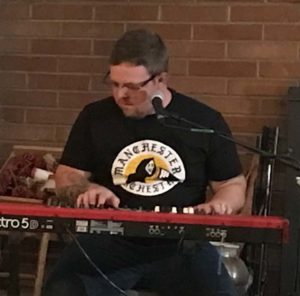
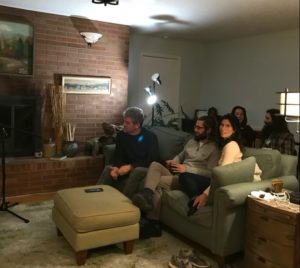
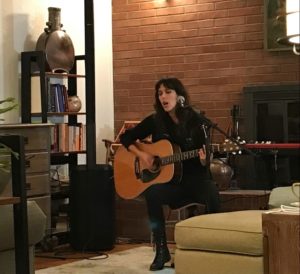
For the DuBois family, the little details of hospitality matter as much as the big stuff. “To hosts, I want to say: just be yourself,” Karen encouraged. “Try and put yourself in the place of what your guest might feel like. In the Hosting Guide, it said to make sure your guests know where to park, so we had signs that were very clear. We also made sure everybody knew where the bathroom was, and that if they wanted to refill their coffee, they could get up without worrying about interrupting since we arranged the room in a certain way.”
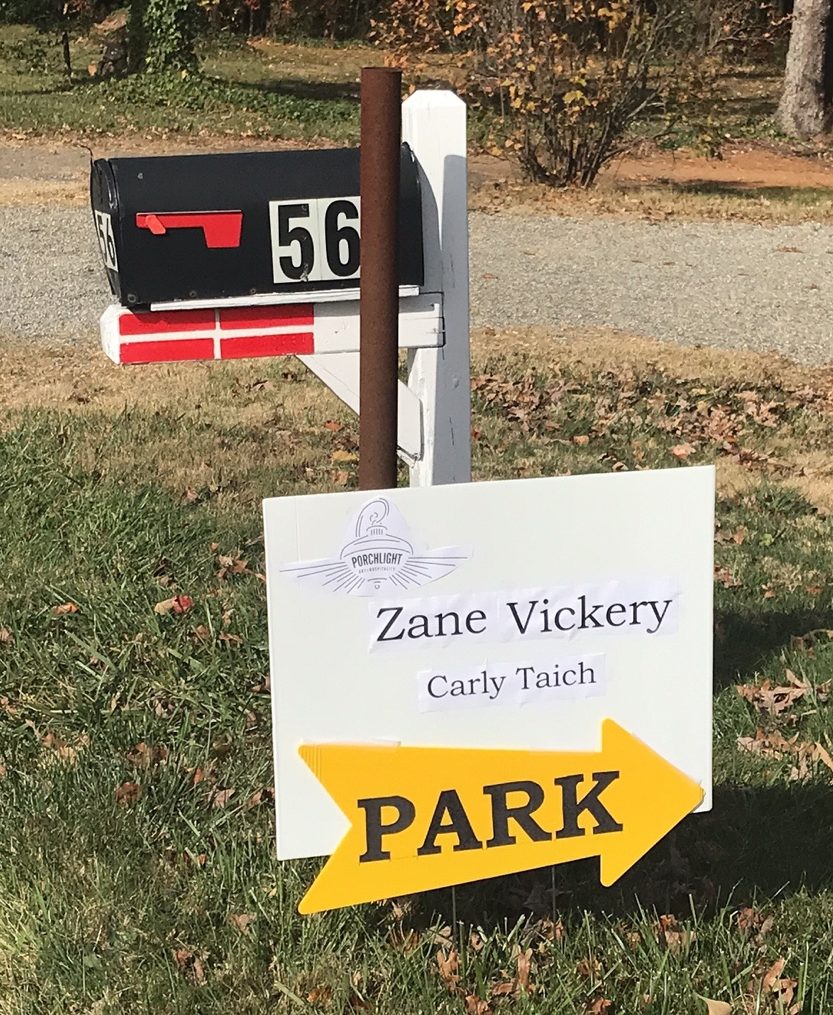
Being yourself includes not getting too caught up in the idealistic presentation that comes from viewing hospitality more as entertaining than sharing in a community.
“A House is a Factory for Living”
Bryan summed it up well: “We learned that a house is a factory for living.”
“A house is a factory for living. It’s true, you know,” Karen added. “You know, in the Scriptures, it says ‘If the stall is clean, where is the produce?’ You have to show some mess in order to show there’s productivity going on.” Bryan nodded. “The musicians are used to putting on an event and talking to people,” he explained. “As hosts, we don’t have to do that other than introduce folks. So we can have people over without having to feel like we’re the type of people that can run things.”
All of this is rooted in the DuBois’ belief in true community, a value they cultivated in their early twenties by living closely alongside other Christians. “It set a pattern where we would just make meals together and spend the time together, or do work or a project together,” Bryan said.
“And as we’ve seen other situations and been part of churches where that type of thing is like a peripheral add-on, not as a way of life, it can result in a lot of people feeling lonely. They go to church and they feel unheard. So for the last couple of years, we’ve tried to be methodical about inviting people over—not to study a book or with an agenda in mind. It’s like planting seeds: you throw the seeds out there and they’ll grow on their own. If we create the pot of soup and have people over, conversations will arise out of that. People will say, ‘That was so wonderful.’ There’s nothing exotic about it, we just made time for the conversation.”
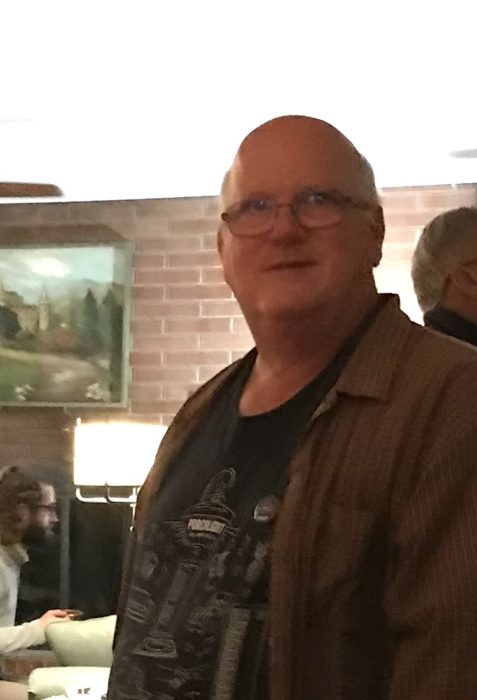
Bryan DuBois

